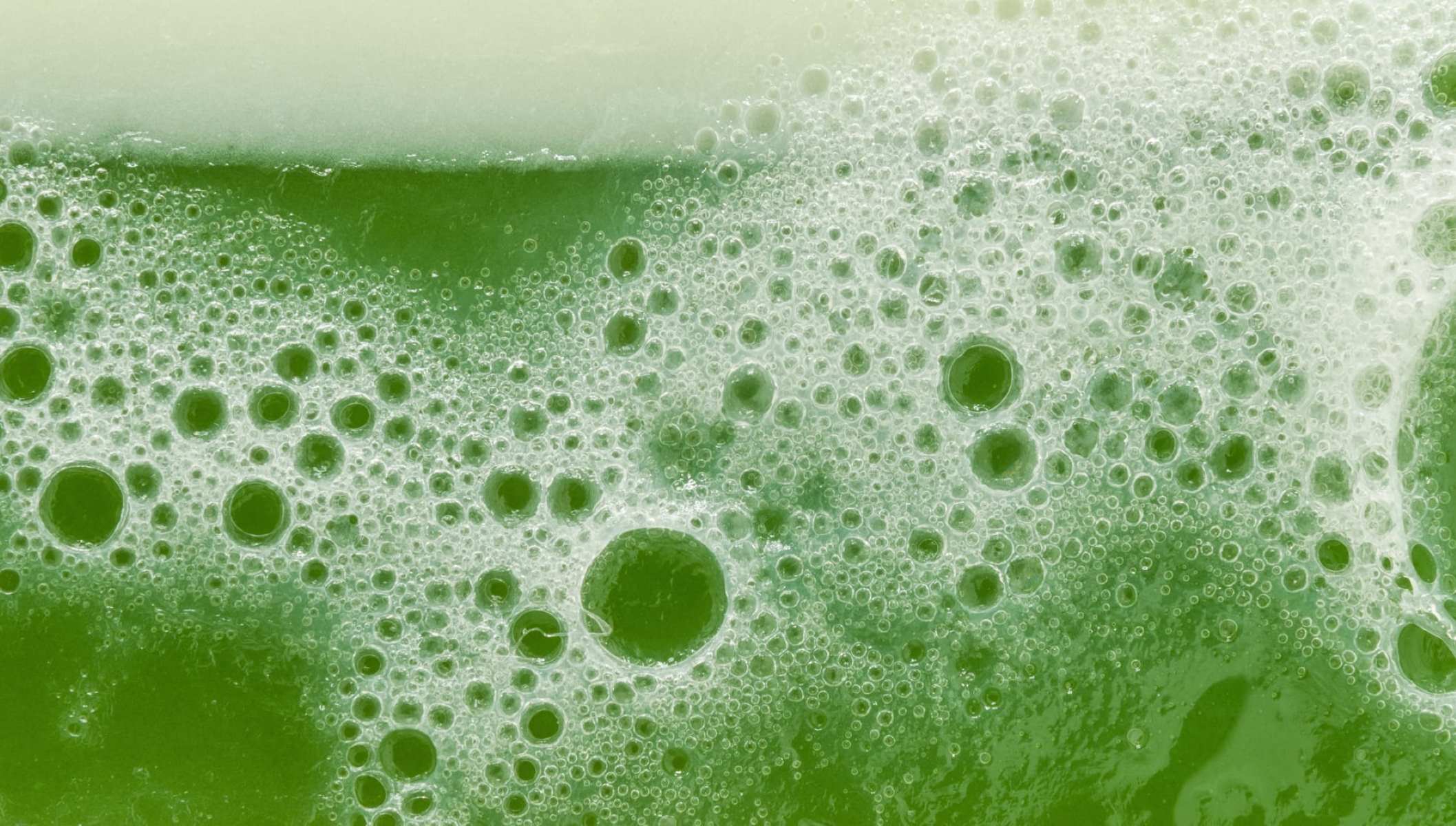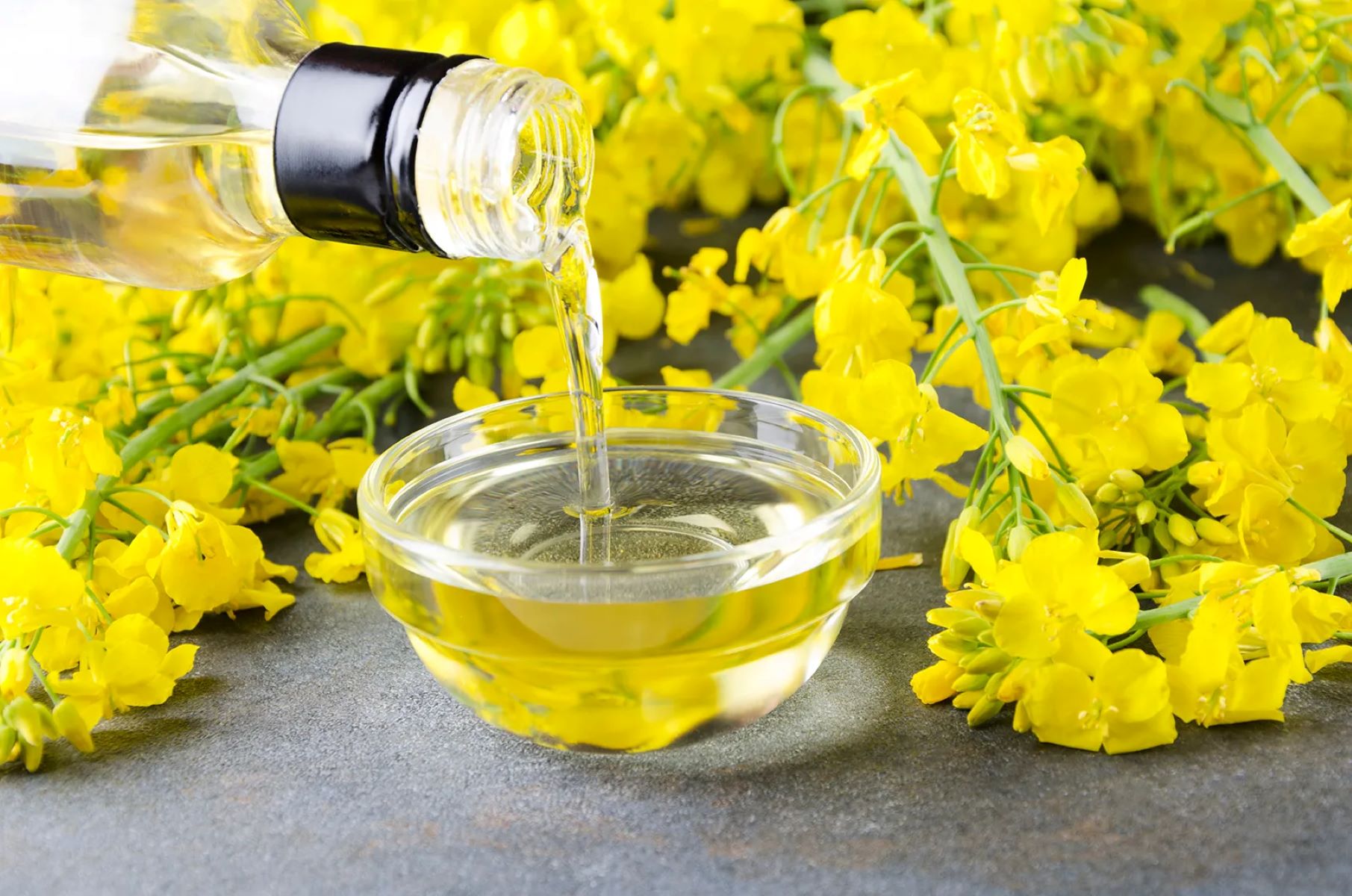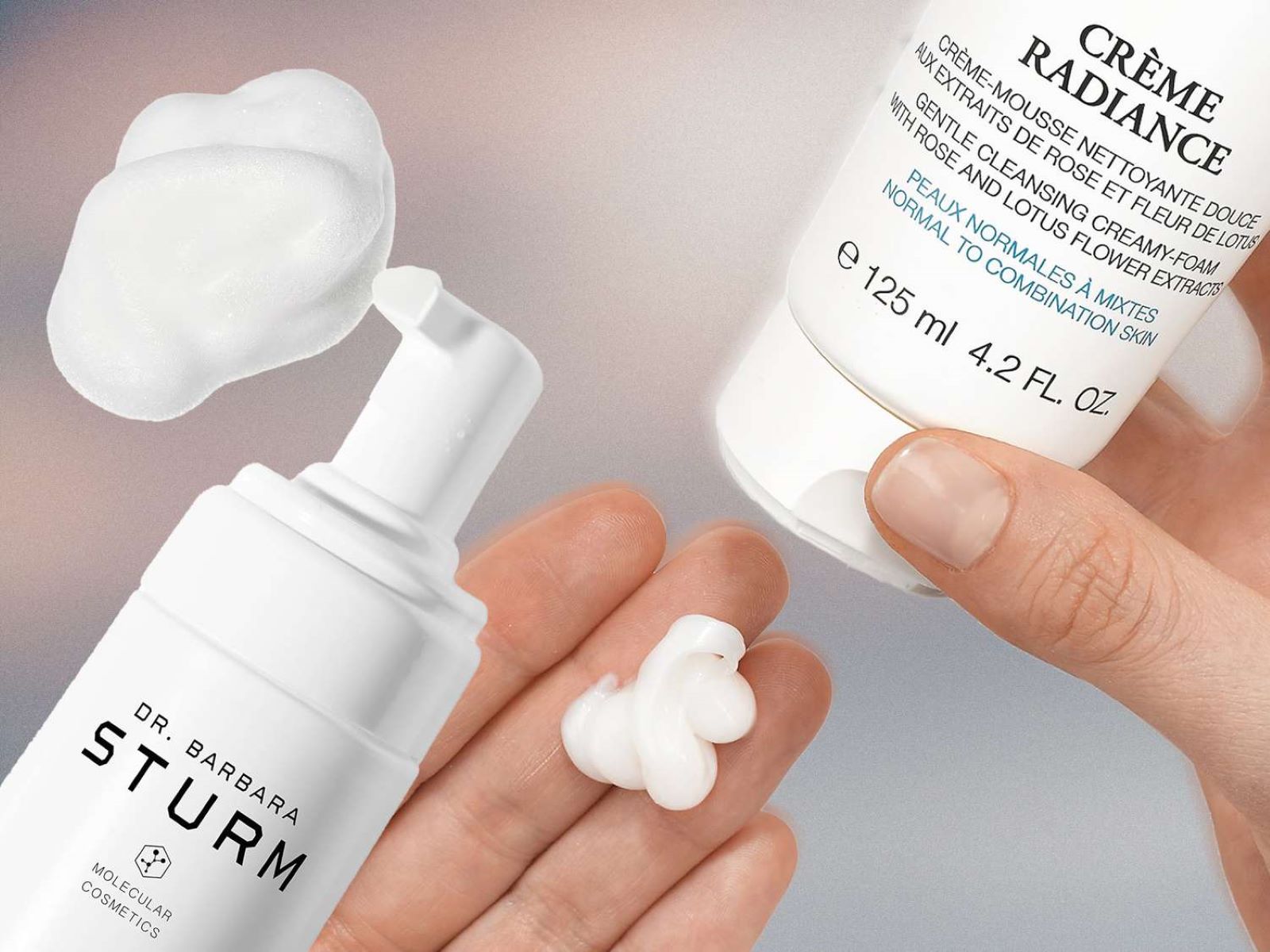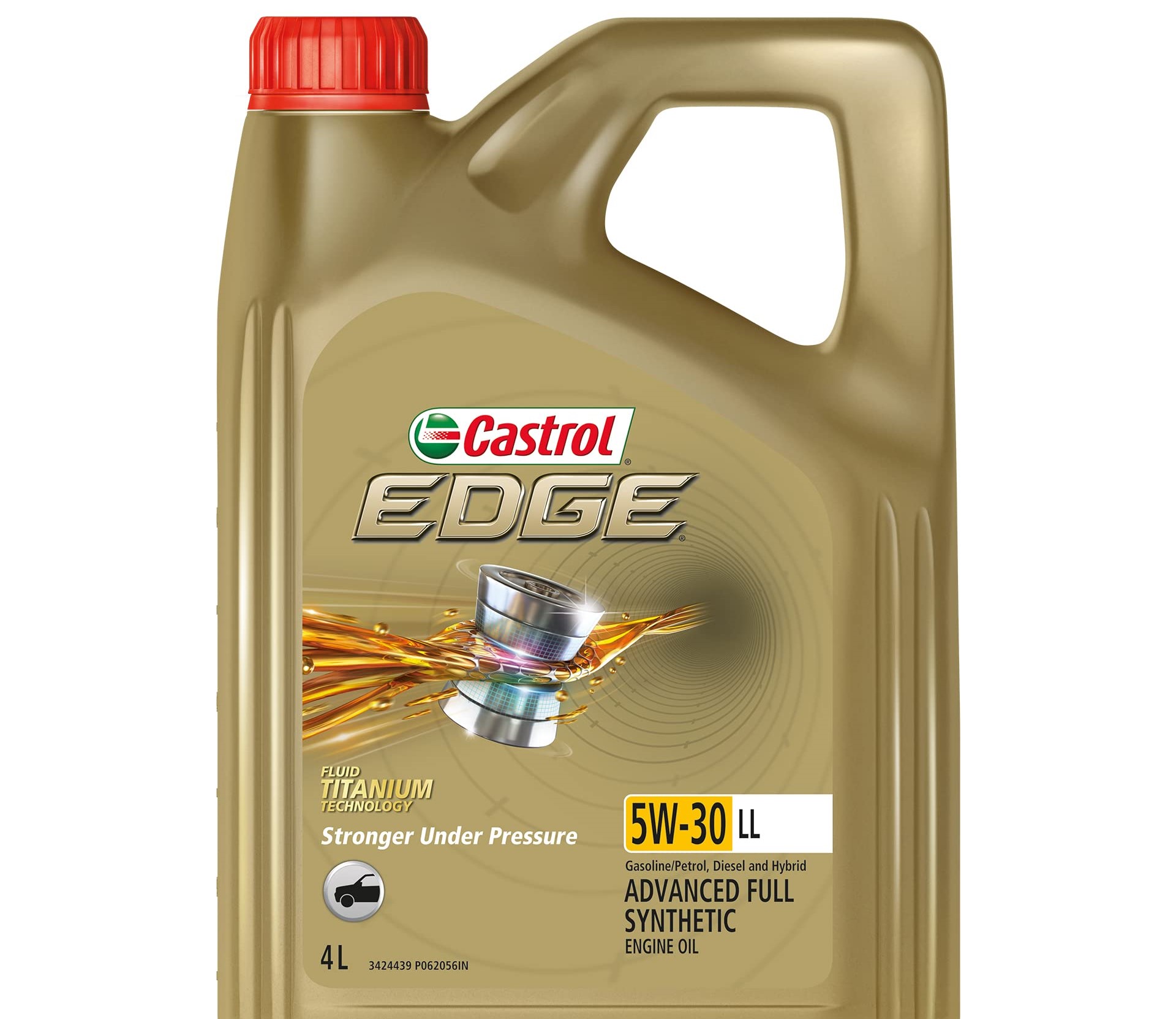Home>Lifestyle>The Ultimate Debate: Oil-Based Vs. Water-Based Cleansers


Lifestyle
The Ultimate Debate: Oil-Based Vs. Water-Based Cleansers
Published: January 27, 2024
Discover the pros and cons of oil-based and water-based cleansers and make an informed decision for your lifestyle. Explore the ultimate debate now!
(Many of the links in this article redirect to a specific reviewed product. Your purchase of these products through affiliate links helps to generate commission for Regretless.com, at no extra cost. Learn more)
Table of Contents
Introduction
When it comes to skincare, choosing the right cleanser is a crucial decision. With an abundance of options available, the debate between oil-based and water-based cleansers continues to captivate skincare enthusiasts. Each type offers unique benefits and considerations, making the decision an essential aspect of any skincare routine. Understanding the characteristics and advantages of both oil-based and water-based cleansers is vital for making an informed choice that aligns with individual skin needs and preferences.
In this comprehensive guide, we will delve into the distinctive features of oil-based and water-based cleansers, exploring their benefits and drawbacks. By the end of this exploration, you will have a clearer understanding of which cleanser type is best suited for your skin type and skincare goals. So, let's embark on this enlightening journey to unravel the mysteries of oil-based and water-based cleansers, empowering you to make an informed decision that will elevate your skincare regimen to new heights.
What Are Oil-Based Cleansers?
Oil-based cleansers are skincare products formulated with oils as their primary cleansing agents. These cleansers are designed to effectively dissolve and remove oil-based impurities such as sebum, makeup, sunscreen, and environmental pollutants from the skin. The key distinguishing feature of oil-based cleansers is their ability to gently lift away oil-based debris without stripping the skin of its natural oils.
These cleansers typically contain a blend of nourishing oils, such as jojoba oil, coconut oil, olive oil, or sunflower seed oil, which work synergistically to break down and remove impurities from the skin's surface. Contrary to common misconception, oil-based cleansers are suitable for all skin types, including oily and acne-prone skin. The principle behind their efficacy lies in the concept of "like dissolves like," where the cleansing oils effectively bond with the skin's natural oils and impurities, facilitating their effortless removal upon rinsing.
Furthermore, oil-based cleansers often boast a luxurious and indulgent texture, providing a pampering sensory experience during the cleansing ritual. This aspect adds a touch of self-care and relaxation to the skincare routine, making it a cherished ritual for many individuals. Additionally, the gentle nature of oil-based cleansers makes them suitable for sensitive skin, as they minimize the risk of irritation and inflammation commonly associated with harsher cleansing methods.
In recent years, oil-based cleansers have gained widespread popularity due to their ability to effectively remove long-wear and waterproof makeup, making them a staple in the skincare routines of makeup enthusiasts and professionals alike. Their efficacy in dissolving stubborn makeup without excessive rubbing or tugging contributes to the overall health and integrity of the skin, promoting a gentle yet thorough cleansing process.
In summary, oil-based cleansers are a versatile and effective skincare option that offers a luxurious cleansing experience while effectively removing oil-based impurities from the skin's surface. Their gentle nature, compatibility with various skin types, and ability to effortlessly remove makeup make them a valuable addition to any skincare routine.
What Are Water-Based Cleansers?
Water-based cleansers, also known as foaming or gel cleansers, are skincare products formulated with water as their primary solvent. These cleansers are designed to effectively remove water-based impurities such as sweat, dirt, and environmental pollutants from the skin's surface. The key characteristic of water-based cleansers lies in their ability to provide a deep and refreshing cleanse without leaving a greasy residue.
These cleansers typically contain surfactants, which are compounds that act as cleansing agents by reducing the surface tension of water and enhancing its ability to interact with oil and dirt. This enables water-based cleansers to create a rich lather that effectively lifts away impurities, leaving the skin feeling clean and revitalized. Additionally, water-based cleansers often incorporate gentle exfoliating ingredients, such as alpha hydroxy acids (AHAs) or beta hydroxy acids (BHAs), to provide mild exfoliation and promote skin renewal.
One of the primary advantages of water-based cleansers is their ability to thoroughly cleanse the skin without clogging pores or leaving behind a heavy residue. This makes them particularly suitable for individuals with oily or acne-prone skin, as the deep-cleansing action helps to minimize excess oil and prevent breakouts. Furthermore, water-based cleansers are renowned for their invigorating and refreshing sensation, making them an ideal choice for morning cleansing routines or for removing impurities after a long day.
In addition to their cleansing properties, water-based cleansers often incorporate hydrating and soothing ingredients, such as aloe vera, hyaluronic acid, or cucumber extract, to replenish the skin's moisture barrier and maintain optimal hydration levels. This aspect is especially beneficial for individuals with dry or sensitive skin, as it helps to prevent the skin from feeling tight or stripped after cleansing.
Moreover, water-based cleansers are an essential component of the double cleansing method, a popular skincare technique that involves using an oil-based cleanser followed by a water-based cleanser to ensure thorough cleansing without compromising the skin's natural balance. By incorporating a water-based cleanser into the double cleansing routine, individuals can effectively remove any remaining impurities and residual traces of oil-based cleansers, leaving the skin impeccably clean and prepared for subsequent skincare products.
In summary, water-based cleansers are a refreshing and effective skincare option that provides deep cleansing without leaving a greasy residue. Their ability to thoroughly cleanse the skin, invigorate the senses, and maintain optimal hydration levels makes them a valuable addition to any skincare routine, catering to a wide range of skin types and preferences.
The Benefits of Oil-Based Cleansers
Oil-based cleansers offer a myriad of benefits that contribute to their growing popularity and widespread acclaim in the realm of skincare. These unique advantages cater to a diverse range of skin types and skincare needs, making oil-based cleansers a versatile and indispensable component of any skincare routine.
-
Efficient Makeup Removal: One of the standout benefits of oil-based cleansers is their remarkable efficacy in removing long-wear and waterproof makeup. The gentle yet effective nature of cleansing oils allows them to effortlessly dissolve stubborn makeup, including waterproof mascara and long-lasting foundation. This not only simplifies the makeup removal process but also minimizes the need for excessive rubbing or tugging, thereby reducing the risk of skin irritation and premature aging caused by repetitive skin manipulation.
-
Gentle Cleansing Action: Oil-based cleansers are renowned for their gentle cleansing action, which effectively removes oil-based impurities without disrupting the skin's natural oils. Unlike some traditional foaming cleansers that can strip the skin of its natural moisture, oil-based cleansers maintain the skin's lipid barrier, preventing dryness and promoting a balanced complexion. This gentle approach makes oil-based cleansers suitable for all skin types, including sensitive and acne-prone skin, as they minimize the risk of aggravating existing skin concerns.
-
Nourishing and Hydrating Properties: Many oil-based cleansers incorporate nourishing oils, such as jojoba oil, almond oil, or argan oil, which boast hydrating and emollient properties. These oils not only aid in the removal of impurities but also impart essential nutrients to the skin, leaving it feeling soft, supple, and nourished. The hydrating benefits of oil-based cleansers make them particularly beneficial for individuals with dry or dehydrated skin, as they help replenish moisture and prevent the skin from feeling tight or parched after cleansing.
-
Sensory Experience and Relaxation: The luxurious texture and indulgent sensory experience offered by oil-based cleansers elevate the act of cleansing into a pampering ritual. The silky, non-greasy texture of cleansing oils provides a spa-like sensation, transforming the mundane task of cleansing into a cherished self-care moment. This aspect not only enhances the overall skincare experience but also contributes to stress relief and relaxation, making the skincare routine a rejuvenating and enjoyable endeavor.
In essence, the benefits of oil-based cleansers encompass efficient makeup removal, gentle cleansing action, nourishing and hydrating properties, and an indulgent sensory experience. These advantages position oil-based cleansers as an invaluable skincare asset, catering to diverse skincare needs and enhancing the overall health and vitality of the skin.
The Benefits of Water-Based Cleansers
Water-based cleansers, also known as foaming or gel cleansers, offer a multitude of advantages that contribute to their widespread appeal and efficacy in skincare routines. These unique benefits cater to a diverse range of skin types and skincare needs, making water-based cleansers an essential and versatile component of any cleansing regimen.
-
Thorough Cleansing Without Residue: One of the primary benefits of water-based cleansers is their ability to provide a deep and thorough cleanse without leaving behind a greasy or heavy residue. The gentle yet effective action of water-based cleansers enables them to lift away water-based impurities, including sweat, dirt, and environmental pollutants, leaving the skin feeling clean, refreshed, and revitalized. This aspect is particularly beneficial for individuals with oily or combination skin, as it helps to minimize excess oil and prevent pore congestion without over-drying the skin.
-
Invigorating Sensation: Water-based cleansers are renowned for their invigorating and refreshing sensation, making them an ideal choice for morning cleansing routines or for removing impurities after a long day. The rich lather created by water-based cleansers not only enhances the cleansing experience but also provides a sensory boost, awakening the senses and preparing the skin for subsequent skincare products. This aspect adds a touch of rejuvenation to the skincare routine, making it a cherished ritual that sets the tone for the day or facilitates relaxation after a busy day.
-
Balanced Hydration and Skin Renewal: Many water-based cleansers incorporate gentle exfoliating ingredients, such as alpha hydroxy acids (AHAs) or beta hydroxy acids (BHAs), to promote mild exfoliation and skin renewal. This gentle exfoliation helps to remove dead skin cells, unclog pores, and enhance the skin's natural renewal process, resulting in a smoother, brighter complexion. Additionally, water-based cleansers often include hydrating and soothing ingredients, such as aloe vera, hyaluronic acid, or cucumber extract, to replenish the skin's moisture barrier and maintain optimal hydration levels. This balanced approach to cleansing and hydration makes water-based cleansers suitable for individuals with dry, sensitive, or aging skin, as it helps to prevent the skin from feeling tight or depleted after cleansing.
-
Essential Component of Double Cleansing: Water-based cleansers play a pivotal role in the double cleansing method, a popular skincare technique that involves using an oil-based cleanser followed by a water-based cleanser. This two-step cleansing process ensures thorough removal of impurities without compromising the skin's natural balance. By incorporating a water-based cleanser into the double cleansing routine, individuals can effectively remove any remaining impurities and residual traces of oil-based cleansers, leaving the skin impeccably clean and prepared for subsequent skincare products.
In essence, the benefits of water-based cleansers encompass thorough cleansing without residue, an invigorating sensation, balanced hydration and skin renewal, and their essential role in the double cleansing method. These advantages position water-based cleansers as a versatile and indispensable skincare asset, catering to diverse skincare needs and promoting the overall health and vitality of the skin.
The Drawbacks of Oil-Based Cleansers
While oil-based cleansers offer a multitude of benefits, it is important to acknowledge and understand their potential drawbacks to make an informed decision regarding their suitability for individual skincare needs. Despite their efficacy and versatility, oil-based cleansers may present certain considerations that warrant attention and careful assessment.
-
Residual Film: One of the primary drawbacks associated with oil-based cleansers is the potential for leaving a residual film or sensation of oiliness on the skin after cleansing. While this characteristic is often intentional, serving to maintain the skin's natural moisture barrier, some individuals may find the lingering sensation uncomfortable or incompatible with their preference for a clean, matte finish.
-
Potential for Breakouts: Individuals with extremely oily or acne-prone skin may experience concerns regarding the use of oil-based cleansers. While these cleansers are formulated to effectively dissolve and remove oil-based impurities, there is a possibility that certain oils or ingredients in the cleanser may exacerbate existing breakouts or contribute to pore congestion in individuals with highly reactive or acne-prone skin.
-
Removal Challenges: In some cases, thoroughly rinsing off oil-based cleansers may require additional effort compared to water-based cleansers. The emollient nature of cleansing oils, while beneficial for makeup removal and gentle cleansing, can pose challenges in terms of complete removal, especially for individuals with limited access to ample running water or those who prefer swift and effortless cleansing routines.
-
Potential Sensory Discomfort: While many individuals appreciate the luxurious and indulgent sensory experience offered by oil-based cleansers, some may find the texture or fragrance overwhelming or incompatible with their personal preferences. Sensory discomfort, such as aversion to certain scents or textures, can detract from the overall cleansing experience and impact the individual's willingness to consistently incorporate the cleanser into their skincare routine.
-
Compatibility with Certain Products: The use of oil-based cleansers may necessitate careful consideration of their compatibility with subsequent skincare products, particularly those with specific formulations or active ingredients. Some individuals may find that certain oil-based cleansers interact unfavorably with their serums, moisturizers, or sunscreen, leading to potential concerns regarding product efficacy or skin compatibility.
In summary, while oil-based cleansers offer remarkable benefits, including efficient makeup removal, gentle cleansing, and nourishing properties, it is essential to acknowledge their potential drawbacks. By understanding these considerations, individuals can make informed decisions and tailor their skincare routines to align with their unique skin type, preferences, and concerns.
The Drawbacks of Water-Based Cleansers
While water-based cleansers offer a plethora of benefits, it is imperative to recognize and comprehend their potential drawbacks to make well-informed decisions regarding their suitability for individual skincare needs. Despite their effectiveness and versatility, water-based cleansers may present certain considerations that warrant attention and careful assessment.
-
Potential for Over-Drying: Some water-based cleansers, particularly those formulated for deep cleansing or oil control, may possess potent cleansing agents that have the potential to strip the skin of its natural oils. This can lead to a sensation of tightness, dryness, or discomfort, especially for individuals with dry or sensitive skin. The over-drying effect may compromise the skin's moisture barrier, leading to increased sensitivity and potential irritation.
-
Sensitivity to Surfactants: The surfactants present in water-based cleansers, while effective in lifting away impurities, may pose concerns for individuals with sensitive or reactive skin. Certain surfactants, especially those with high foaming or lathering properties, have the potential to cause mild to moderate skin irritation or exacerbate existing sensitivity. This can manifest as redness, stinging, or a sensation of discomfort after cleansing.
-
Potential for Pore Congestion: Individuals with oily or acne-prone skin may encounter challenges with water-based cleansers that do not effectively remove excess oil and impurities. Inadequate cleansing may contribute to pore congestion, leading to the development of blackheads, whiteheads, or blemishes. Additionally, the residue from certain water-based cleansers may create a film on the skin, further exacerbating pore-related concerns.
-
Limited Makeup Removal: While water-based cleansers are effective in removing water-based impurities, they may present challenges in thoroughly dissolving and removing long-wear or waterproof makeup. This can necessitate additional cleansing steps or the use of makeup removers, adding complexity to the skincare routine and potentially leading to residual traces of makeup that can impact the skin's health and appearance.
-
Potential Sensory Discomfort: The presence of fragrances, essential oils, or certain preservatives in water-based cleansers may elicit sensory discomfort in some individuals. This can manifest as aversion to specific scents, textures, or sensations during and after cleansing, impacting the overall experience and deterring consistent use of the cleanser.
In essence, while water-based cleansers offer thorough cleansing, balanced hydration, and an invigorating sensation, it is essential to acknowledge their potential drawbacks. By understanding these considerations, individuals can make informed decisions and tailor their skincare routines to align with their unique skin type, preferences, and concerns.
Which Cleanser Is Right for You?
Choosing the ideal cleanser for your skincare routine hinges on a comprehensive understanding of your skin type, concerns, and preferences. Both oil-based and water-based cleansers offer unique benefits, making the decision a pivotal aspect of your daily skincare ritual. To determine which cleanser aligns best with your needs, consider the following factors:
Skin Type and Concerns
-
Dry or Dehydrated Skin: If you experience dryness or dehydration, particularly after cleansing, an oil-based cleanser may offer the nourishment and hydration your skin craves. The emollient properties of cleansing oils can help replenish moisture and prevent the uncomfortable tightness often associated with dry skin.
-
Oily or Acne-Prone Skin: Individuals with excess oil production or acne concerns may find water-based cleansers beneficial. These cleansers effectively remove oil-based impurities without leaving a heavy residue, helping to minimize pore congestion and maintain a balanced complexion.
-
Sensitive Skin: For sensitive skin types, the gentle nature of both oil-based and water-based cleansers makes them viable options. However, it's essential to opt for formulations that are free from potential irritants and tailored to soothe and protect sensitive skin.
Skincare Routine and Preferences
-
Makeup Enthusiasts: If you regularly wear long-wear or waterproof makeup, an oil-based cleanser excels in effortlessly dissolving and removing stubborn makeup, simplifying your cleansing routine without compromising skin health.
-
Double Cleansing Advocates: Those who embrace the double cleansing method, especially to ensure thorough makeup removal or deep cleansing after a long day, can benefit from incorporating both oil-based and water-based cleansers. This two-step approach effectively addresses different types of impurities and promotes comprehensive cleansing.
-
Sensory Experience: Consider your preference for sensory indulgence during cleansing. If you appreciate a luxurious, spa-like sensation and the comforting embrace of nourishing oils, an oil-based cleanser may elevate your skincare routine into a cherished self-care ritual.
Environmental Factors
- Humidity and Climate: In humid environments, where excess moisture and sweat are common concerns, water-based cleansers can effectively remove sweat and impurities without adding unnecessary emollients. In contrast, drier climates may warrant the use of oil-based cleansers to maintain skin hydration.
By evaluating these considerations and understanding how they intersect with your unique skin profile and lifestyle, you can confidently select the cleanser that harmonizes with your skincare goals. Whether you opt for the luxurious efficacy of an oil-based cleanser or the refreshing vitality of a water-based cleanser, your choice will lay the foundation for a skincare routine that nurtures and revitalizes your skin every day.
Conclusion
In the realm of skincare, the debate between oil-based and water-based cleansers unveils a rich tapestry of benefits, considerations, and personal preferences. Both cleanser types offer distinct advantages, catering to a diverse array of skin types, concerns, and lifestyle choices. The decision of which cleanser is right for you ultimately hinges on a comprehensive understanding of your skin's unique needs and your individual skincare goals.
Oil-based cleansers, with their gentle yet effective makeup removal, nourishing properties, and indulgent sensory experience, have carved a niche as a luxurious and versatile skincare option. Their ability to dissolve stubborn makeup and maintain the skin's natural moisture barrier makes them a cherished asset for makeup enthusiasts, individuals with dry or dehydrated skin, and those who appreciate the pampering ritual of skincare.
On the other hand, water-based cleansers shine in their thorough cleansing without residue, invigorating sensation, and balanced hydration. Their efficacy in removing water-based impurities and promoting skin renewal positions them as an essential component of skincare routines, particularly for individuals with oily or combination skin, sensitive skin, or those seeking a refreshing cleansing experience.
The pivotal role of skin type, concerns, skincare routine, and environmental factors in the decision-making process underscores the personalized nature of skincare. By aligning your choice of cleanser with these considerations, you can elevate your daily skincare ritual into a tailored self-care experience that nurtures and revitalizes your skin.
Whether you find solace in the gentle embrace of cleansing oils or the refreshing vitality of foaming cleansers, your selection reflects a commitment to nurturing your skin and embracing the transformative power of skincare. As you embark on this enlightening journey of self-discovery and self-care, may your chosen cleanser become a beacon of rejuvenation and a testament to the beauty of personalized skincare.













